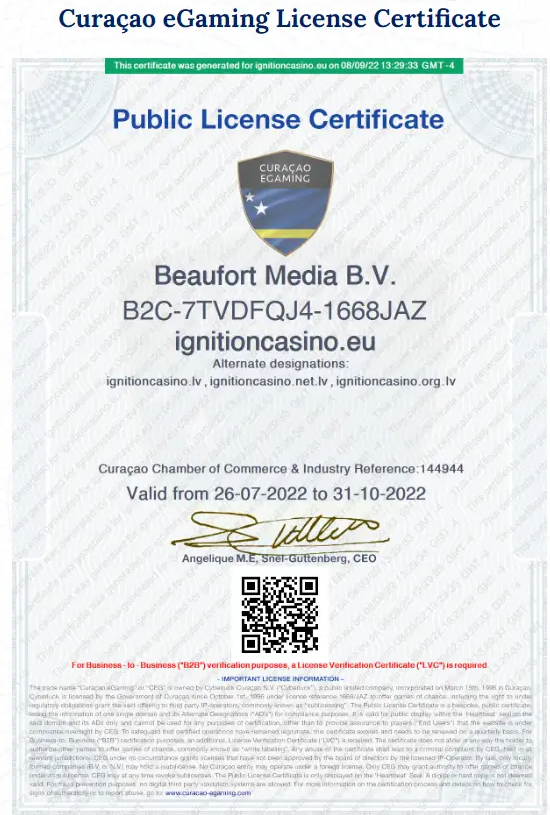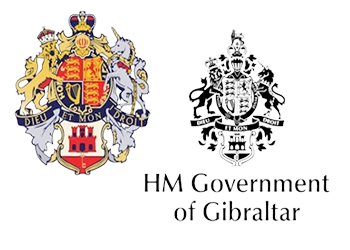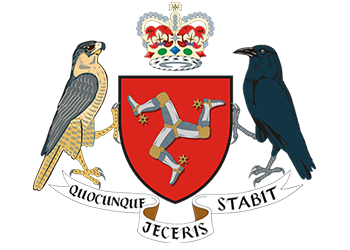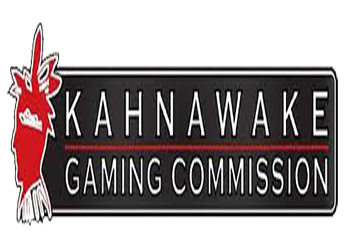Everything You Need To Know About Casino Licenses

Everything You Need To Know About Casino Licenses
Understanding casino licenses is a vital part of grasping the world of online casinos. These licenses are not just regulatory formalities; they are the backbone of a safe and transparent online gambling environment. For players seeking a trustworthy and enjoyable experience, knowing about casino licenses is as essential as understanding the games themselves. At Help Desk Casino, we believe in empowering our readers with knowledge, so let’s dive into everything you need to know about casino licenses.

Casino licenses are issued by regulatory authorities worldwide, ensuring that online casinos operate fairly and securely. These licenses serve as a stamp of approval that the casino adheres to strict rules, including player protection, responsible gambling practices, and the use of certified gaming software. Without a license, a casino operates in a legal gray area, leaving players vulnerable to fraud and unfair treatment. That’s why knowing a casino’s licensing status should be one of the first steps in your selection process.
Licensing authorities, such as the Malta Gaming Authority (MGA), the United Kingdom Gambling Commission (UKGC), and the Government of Curaçao, are some of the most well-known regulators in the industry. Each of these bodies has its unique standards and requirements, ensuring that players are treated fairly and games are not rigged. For instance, the UKGC is particularly stringent, enforcing rules that protect players from harmful practices and ensure payouts are timely and accurate.
Choosing a licensed casino ensures several key benefits. First and foremost, you gain peace of mind knowing your funds and personal information are secure. Licensed casinos must comply with robust data protection laws and anti-money laundering regulations. Additionally, licensed casinos are required to use Random Number Generators (RNGs) that are independently tested to ensure fair gameplay. This means every spin, roll, or deal is genuinely random, giving you a fair shot at winning. Beyond security, casino licenses also provide a channel for dispute resolution.

Should you ever encounter issues with withdrawals, bonuses, or game fairness, regulatory bodies act as a mediator to resolve disputes impartially. This level of accountability is one of the reasons why licensed casinos stand out from unregulated ones. However, it’s important to recognize that not all licenses are created equal. While some jurisdictions have rigorous standards, others may be more lenient. This disparity can affect your overall experience. For instance, casinos licensed by the MGA or UKGC are often preferred due to their strict regulatory frameworks, while licenses from smaller jurisdictions may offer less robust protections.
As a player, understanding these differences can help you make informed decisions about where to play. For operators, obtaining a license is no easy task. They must undergo thorough audits, provide financial transparency, and demonstrate their ability to run a secure and ethical operation. Regular checks ensure that licensed casinos maintain these standards over time, further guaranteeing a safe environment for players.
At Help Desk Casino, we emphasize the importance of playing at licensed casinos. Our reviews always highlight the licensing details of each operator we cover, ensuring you have the information needed to make the best choices. By prioritizing licensed casinos, you’re not just safeguarding your money—you’re ensuring an all-around better gambling experience.
In conclusion, casino licenses are the foundation of a trustworthy and enjoyable online gaming environment. They provide security, fairness, and accountability, giving players confidence in their chosen platforms. By understanding the role and significance of these licenses, you can navigate the online casino world with greater ease and assurance. Stick with licensed operators, and you’ll enjoy a safer, more rewarding gambling journey every time.
What Are Online Casino Licenses?

In the ever-evolving world of online gambling, online casino licenses play a crucial role in ensuring trust, fairness, and safety for players. But what exactly are online casino licenses, and why are they so important? At their core, these licenses are legal certifications granted by regulatory authorities, allowing an online casino to operate under strict rules and guidelines. These certifications are essential for both operators and players, as they create a transparent and secure gambling environment. An online casino license is essentially a seal of approval from a recognized authority that oversees the casino’s operations.
This certification indicates that the casino complies with legal, ethical, and operational standards, including fair gaming practices, data protection, and responsible gambling measures. Without a valid license, an online casino operates in a legal gray area, which poses risks to players in terms of fairness, security, and recourse. When a casino seeks a license, it undergoes a rigorous evaluation process by a regulatory body. Authorities like the Malta Gaming Authority (MGA), the United Kingdom Gambling Commission (UKGC), and the Curaçao eGaming Authority are among the most respected licensors in the industry. These organizations scrutinize the casino’s business practices, financial stability, and commitment to providing fair and safe gambling experiences.
A casino must demonstrate the use of certified Random Number Generators (RNGs) to ensure that the games’ outcomes are genuinely random and unbiased. The importance of these licenses lies in the protections they offer. For players, choosing a licensed casino ensures that the platform adheres to strict guidelines designed to safeguard your personal and financial information. Licensed casinos must comply with anti-money laundering regulations and data protection laws, reducing the risks of fraud and identity theft. Furthermore, licensing authorities regularly audit these platforms to ensure they maintain their standards, adding another layer of security for players.
Another vital aspect of online casino licenses is their role in dispute resolution. If a player encounters issues such as delayed withdrawals, bonus disputes, or concerns about game fairness, they can turn to the licensing authority for assistance. Regulatory bodies act as impartial mediators, ensuring that disputes are resolved fairly and transparently. This level of accountability is absent in unlicensed casinos, leaving players vulnerable to unfair treatment.
It’s also important to understand that not all licenses are created equal. Different jurisdictions have varying levels of oversight and regulatory rigor. For example, licenses from the UKGC or MGA are known for their stringent standards, providing players with robust protections. On the other hand, some smaller jurisdictions may offer licenses with less strict requirements, which could impact the safety and fairness of the casino.
For operators, obtaining a license is both a responsibility and a competitive advantage. A license not only legitimizes their operations but also builds trust among players. Casinos that display valid licensing information on their platforms are more likely to attract discerning players who prioritize safety and transparency. Conversely, unlicensed casinos often struggle to gain credibility, as players are increasingly aware of the risks associated with these platforms.
Understanding what casino licenses are also helps players make informed decisions. By checking a casino’s licensing credentials, you can verify its legitimacy and assess whether it meets industry standards. Licensing information is typically displayed at the bottom of a casino’s homepage and can often be verified through the licensing authority’s website.
In conclusion, online casino licenses are the cornerstone of a safe and fair gambling environment. They ensure that operators follow strict guidelines, protect players’ interests, and offer genuinely random and unbiased games. For players, choosing a licensed casino means peace of mind, knowing that their funds, data, and gaming experience are in safe hands. By understanding the role and importance of online casino licenses, you can navigate the online gambling world confidently, ensuring that your experience is both enjoyable and secure.

The Most Known Online Casino Licenses
Online casino licenses are the bedrock of a trustworthy gambling experience. They signify legitimacy, enforce strict regulations, and ensure player safety. For online casinos, having a reputable license is akin to earning a badge of honor, while for players, it is a reassurance of fair play and security. Several licensing authorities are renowned in the industry for their stringent standards, and this review delves into the most known online casino licenses and their significance.

Malta Gaming Authority (MGA)
The Malta Gaming Authority (MGA) is one of the most respected licensing bodies in the world. Established in 2001, the MGA is known for its comprehensive regulatory framework that covers both operators and players. It is a preferred choice for many online casinos due to Malta’s favorable tax laws and business-friendly environment.
The MGA ensures fairness by requiring casinos to use Random Number Generators (RNGs) certified by independent testing agencies. Additionally, they impose strict anti-money laundering (AML) policies and mandate robust responsible gambling measures. Players can trust MGA-licensed casinos to prioritize data protection, offer secure payment methods, and provide recourse through their dispute resolution process.

UK Gambling Commission (UKGC)
The UK Gambling Commission (UKGC) is another heavyweight in the online gambling industry. As the regulatory authority for the United Kingdom, the UKGC licenses and monitors online casinos to ensure compliance with stringent laws. It is particularly known for its focus on player protection and transparency.
Casinos licensed by the UKGC must adhere to robust standards, including thorough identity verification processes, anti-fraud measures, and fair advertising practices. The commission also emphasizes responsible gambling, requiring operators to provide tools like self-exclusion and deposit limits. Players in the UK benefit from a secure and regulated gambling environment backed by the UKGC’s oversight.

Curacao eGaming
Curacao eGaming is one of the oldest licensing authorities, operating since 1996. It is known for its straightforward licensing process, which makes it popular among startups in the online gambling industry. However, its reputation is somewhat mixed compared to other authorities due to its less stringent regulations.
While Curacao eGaming ensures casinos meet basic standards of fairness and security, it does not provide the same level of player protection or dispute resolution as the MGA or UKGC. Nevertheless, many reputable online casinos hold Curacao licenses, and they are particularly favored by cryptocurrency-friendly operators.

Gibraltar Gambling Commissioner (GGC)
The Gibraltar Gambling Commissioner (GGC) is a highly respected regulatory authority that has been licensing online casinos since 1998. Based in Gibraltar, the GGC is known for its rigorous application process and strict oversight.
GGC-licensed casinos are required to demonstrate financial stability, implement advanced security measures, and provide fair gaming experiences. The authority also places a strong emphasis on responsible gambling, ensuring that operators have robust player protection tools in place. The GGC’s high standards make it a trusted name among players and operators alike.

Alderney Gambling Control Commission (AGCC)
The Alderney Gambling Control Commission (AGCC) is another prestigious licensing authority, regulating online gambling since 2000. Based in the Channel Islands, the AGCC oversees some of the world’s most reputable online casinos.
The AGCC is known for its transparent operations and robust regulatory framework. It requires operators to meet high standards in terms of financial integrity, game fairness, and player protection. Casinos licensed by the AGCC are subject to regular audits, ensuring they maintain compliance with the authority’s strict regulations.

Isle of Man Gambling Supervision Commission (GSC)
The Isle of Man Gambling Supervision Commission (GSC) is a respected regulatory body that has been licensing online casinos since 2001. It is known for its commitment to player protection and innovative approaches to regulation.
The GSC requires operators to provide secure payment methods, fair games, and robust responsible gambling tools. It also places a strong emphasis on anti-money laundering measures and ensures that player funds are kept in segregated accounts to protect them in case of insolvency.

Kahnawake Gaming Commission (KGC)
The Kahnawake Gaming Commission (KGC) operates out of the Mohawk Territory of Kahnawake in Canada. Established in 1996, the KGC has a long history of regulating online casinos and poker rooms.
The KGC’s licensing process is relatively straightforward, but it still requires operators to meet essential standards of fairness and security. The commission also provides a dispute resolution service, allowing players to raise complaints against licensed operators.

Swedish Gambling Authority (Spelinspektionen)
The Swedish Gambling Authority, known as Spelinspektionen, regulates online gambling in Sweden. It is a newer player in the licensing arena, but it has quickly earned a reputation for its strict regulations.
Casinos licensed by Spelinspektionen must comply with rigorous standards, including robust player protection measures and responsible gambling initiatives. The authority also enforces strict advertising rules to ensure transparency and fairness.
Significance of These Licenses:These licenses signify that an online casino has met stringent requirements designed to ensure a safe, fair, and transparent gambling environment. Players can trust casinos licensed by these authorities to uphold high standards of security, fairness, and responsible gambling.
When choosing an online casino, it is crucial to verify its licensing information. A license from a reputable authority not only guarantees a fair gaming experience but also provides a layer of protection in case of disputes. By understanding the role and reputation of these licensing bodies, players can make informed decisions and enjoy a safer online gambling experience.
What Do Casino Lincese regulatory authorities Do?

Online casino license regulatory authorities play a pivotal role in the gambling industry, ensuring fairness, transparency, and safety for players and operators alike. These entities serve as the governing bodies that oversee, regulate, and monitor online casinos to maintain integrity and trust within the industry. Their responsibilities extend far beyond issuing licenses; they are involved in creating regulations, enforcing compliance, and protecting players’ rights.
Licensing Online Casinos
The primary function of a regulatory authority is to issue licenses to online casinos. To obtain a license, a casino must meet strict criteria designed to ensure its operations are legitimate, fair, and secure. This process involves a thorough evaluation of the casino’s business practices, financial stability, and adherence to ethical guidelines. For example, authorities like the UK Gambling Commission (UKGC) or the Malta Gaming Authority (MGA) require operators to demonstrate financial solvency and prove their games use certified Random Number Generators (RNGs) to ensure fair outcomes.
By issuing a license, the regulatory authority grants the casino permission to operate within specific jurisdictions under its oversight. This licensing process also includes background checks on the casino’s owners and executives to ensure they have no history of fraudulent activity or unethical practices.
Enforcing Compliance and Standards
Once a license is granted, regulatory authorities continue to monitor the casino to ensure it complies with established standards. These standards cover a wide range of areas, including game fairness, data protection, anti-money laundering (AML) measures, and responsible gambling practices. Regular audits and inspections are conducted to verify that the casino adheres to these requirements.
For instance, casinos must provide evidence that their games are not rigged and that players have a fair chance of winning. Authorities often require third-party testing agencies, such as eCOGRA or iTech Labs, to certify the games’ RNGs and overall fairness. Additionally, casinos must comply with stringent data protection laws to safeguard players’ personal and financial information.
Promoting Responsible Gambling
Regulatory authorities place significant emphasis on responsible gambling to prevent addiction and financial harm. They require online casinos to implement tools that allow players to set deposit limits, self-exclude, or access support resources if they feel their gambling is becoming problematic. Some authorities mandate that casinos prominently display information about responsible gambling and collaborate with organizations like GamCare or Gamblers Anonymous.
By enforcing these measures, regulatory authorities aim to create a safer gambling environment where players can enjoy the experience without risking their well-being.
Resolving Disputes
Another critical function of regulatory authorities is to mediate disputes between players and casinos. When players encounter issues such as delayed withdrawals, unfair treatment, or bonus disputes, they can escalate the matter to the regulatory body overseeing the casino. The authority acts as an impartial mediator, reviewing the evidence presented by both parties and ensuring a fair resolution.
This accountability is a key benefit of playing at licensed casinos, as it provides players with a reliable avenue for recourse in case of disputes. Unlicensed casinos, on the other hand, lack this level of oversight, leaving players vulnerable to exploitation.
Preventing Money Laundering and Fraud
Online casinos are often targeted by criminals for money laundering and fraudulent activities. Regulatory authorities combat this by requiring operators to implement robust anti-money laundering (AML) and Know Your Customer (KYC) procedures. These processes involve verifying players’ identities and monitoring transactions to detect suspicious activities.
By enforcing these measures, regulatory authorities help prevent casinos from being used for illicit purposes, protecting both players and the broader financial system.
Maintaining Transparency and Trust
Transparency is a cornerstone of a reputable online gambling industry, and regulatory authorities play a vital role in maintaining it. Licensed casinos are required to display their licensing information clearly on their websites, allowing players to verify their legitimacy. Additionally, regulatory authorities often maintain public databases where players can check a casino’s licensing status and compliance history.
By ensuring transparency, these authorities build trust between players and operators, which is essential for the industry’s sustainability.
Adapting to Industry Changes
The online gambling industry is constantly evolving, with new technologies, trends, and challenges emerging regularly. Regulatory authorities must adapt to these changes by updating their rules and standards. For example, with the rise of cryptocurrency gambling, many authorities have developed new guidelines to address the unique challenges posed by digital currencies, such as anonymity and transaction traceability.
Similarly, as mobile gaming becomes more prevalent, regulatory bodies have introduced standards to ensure mobile casinos meet the same level of security and fairness as their desktop counterparts.
Protecting Vulnerable Players
Finally, regulatory authorities are committed to protecting vulnerable players, including minors and those at risk of developing gambling problems. They require casinos to implement robust age verification processes to prevent underage gambling and to offer tools that help players control their gambling habits.
These measures ensure that the online gambling environment remains inclusive and safe for all users, minimizing the risks associated with irresponsible gambling behavior.
Online casino license regulatory authorities are the backbone of a secure and fair online gambling ecosystem. Their multifaceted role encompasses licensing, monitoring compliance, promoting responsible gambling, resolving disputes, preventing fraud, and ensuring transparency. For players, these authorities provide a sense of security, knowing that licensed casinos operate under strict guidelines designed to protect their interests. For operators, working within a regulated framework enhances credibility and fosters trust among players.
By understanding the vital functions of regulatory authorities, players can make informed decisions and enjoy a safer, more enjoyable gambling experience. These organizations are not just gatekeepers but also advocates for fairness and integrity in the online casino industry.
How To Know If A Casino Has A Legit Gaming License?
When venturing into the world of online gambling, ensuring the platform you choose is safe and trustworthy is paramount. A key indicator of an online casino’s credibility is whether it holds a legitimate gaming license. But how can you tell if a casino has a legitimate license? Let’s break it down step by step to help you verify this crucial detail.
1. Check the Casino’s Licensing Information
The first step in verifying an online casino’s license is to look for the licensing information on its website. Reputable casinos prominently display their licensing details at the bottom of their homepage or in their “About Us” or “Terms and Conditions” section. The licensing information should include:
- The name of the licensing authority (e.g., Malta Gaming Authority, UK Gambling Commission).
- The license number or registration details.
This transparency is a good sign that the casino is operating legally and is regulated by a reputable authority.
2. Verify the License with the Issuing Authority
Even if the casino claims to have a license, it’s essential to confirm its legitimacy. Reputable licensing authorities maintain online registries where you can verify an operator’s license. For example:
- Visit the Malta Gaming Authority’s official website and use their license search tool.
- Check the UK Gambling Commission’s database for active license holders.
Simply input the casino’s name or license number, and the registry will show whether the license is valid and active.
3. Look for Reputable Licensing Authorities
Not all gaming licenses are created equal. Some authorities are stricter than others in regulating online casinos. Here are a few of the most respected licensing bodies:
- Malta Gaming Authority (MGA): Known for its stringent regulations and player protection.
- UK Gambling Commission (UKGC): Prioritizes fairness, transparency, and responsible gambling.
- Gibraltar Gambling Commissioner: Offers high standards of regulation and dispute resolution.
- Alderney Gambling Control Commission (AGCC): Ensures secure and fair gaming experiences.
- Isle of Man Gambling Supervision Commission (GSC): Focuses on player protection and financial security.
Casinos licensed by these authorities are generally more trustworthy. On the other hand, licenses from less reputable jurisdictions might indicate lenient oversight, which could pose risks for players.
4. Assess the Casino’s Reputation
The legitimacy of a license often goes hand-in-hand with the casino’s reputation. Research the casino by reading player reviews and checking ratings on trusted online casino review platforms. If players consistently mention issues such as delayed payouts, rigged games, or poor customer support, it’s a red flag—even if the casino claims to be licensed.
Reputable casinos with legitimate licenses typically have positive feedback about their fairness, security, and overall service quality.
5. Review the Casino’s Terms and Conditions
Licensed casinos are required to operate transparently, and this is often reflected in their terms and conditions. Take the time to review these documents to ensure they align with the standards set by their licensing authority. Look for clear information about:
- Bonus terms and wagering requirements.
- Withdrawal limits and processes.
- Data protection and privacy policies.
Legitimate casinos won’t hide behind vague or deceptive terms.
6. Check the Casino’s Security Measures
A licensed casino will prioritize player safety by implementing robust security measures. This includes:
- SSL encryption to protect your personal and financial information.
- Verified payment methods from trusted providers.
- Fair gaming certifications from third-party auditors like eCOGRA or iTech Labs.
Licensed casinos are regularly audited to ensure their games are fair and their systems are secure. If a casino fails to meet these standards, its license could be revoked.
7. Look for Responsible Gambling Features
Legitimate casinos licensed by respected authorities are required to promote responsible gambling. They provide tools such as:
- Deposit limits.
- Self-exclusion options.
- Reality checks to help players monitor their gaming habits.
These features demonstrate the casino’s commitment to player welfare, a hallmark of licensed operators.
8. Avoid Red Flags
Be cautious of casinos that:
- Do not display licensing information or provide vague details.
- Claim to be licensed by unknown or questionable authorities.
- Offer unrealistic bonuses or promotions with unclear terms.
- Lack transparency about ownership or operations.
If you encounter any of these warning signs, it’s best to avoid the casino altogether.
Why a Legit Gaming License Matters
A legitimate gaming license ensures that the casino operates within legal frameworks and adheres to strict regulations. It protects players by:
- Ensuring fair gaming practices.
- Offering secure payment methods and data protection.
- Providing recourse for disputes through the licensing authority.
Without a valid license, a casino operates in a legal gray area, leaving players vulnerable to fraud, unfair practices, or financial loss. Knowing how to verify a casino’s license is crucial for a safe and enjoyable online gambling experience. By checking the licensing information, confirming its validity with the issuing authority, and assessing the casino’s reputation and security measures, you can confidently choose a platform that prioritizes fairness and player protection. Always remember, a legitimate license is your gateway to trustworthy gaming.
The History Of Online Casino Licenses
The evolution of online casino licenses is deeply intertwined with the growth of the internet and the increasing popularity of online gambling. In the early days of digital connectivity, online casinos emerged in a largely unregulated environment, leaving players exposed to potential fraud and unfair practices. However, as the demand for internet-based gambling grew, so did the need for regulation, leading to the development of online casino licensing frameworks. This evolution has ensured the safety and integrity of the online gambling industry, transforming it into a more structured and player-friendly ecosystem.
The story begins in the mid-1990s when the internet was rapidly gaining traction. With more people accessing the web, innovative entrepreneurs saw an opportunity to bring traditional casino games to a digital platform. Microgaming, one of the pioneers in online gambling software, launched its first online casino in 1994. However, without regulations, these early platforms operated without oversight, raising concerns about fairness, security, and trustworthiness.
In response to these concerns, governments and jurisdictions began to explore ways to regulate online gambling. Antigua and Barbuda was one of the first to take a significant step by passing the Free Trade and Processing Zone Act in 1994. This legislation allowed the country to issue licenses to online gambling operators, providing a legal framework for their activities. Antigua and Barbuda’s early licensing model set a precedent, marking the beginning of regulated online gambling.
The introduction of licensing authorities brought a sense of legitimacy and oversight to the industry. Licensed operators were required to adhere to specific standards, such as fair gaming practices, secure payment systems, and responsible gambling measures. For players, this meant a safer and more reliable gambling experience, helping to build trust in the burgeoning online casino sector.
As the industry expanded, other jurisdictions followed suit, establishing their own licensing authorities to cater to the growing number of operators. The Isle of Man, Gibraltar, and Malta emerged as key players in the late 1990s and early 2000s, offering regulatory frameworks that combined strict oversight with attractive business conditions for operators. Malta, in particular, became a hub for online gambling due to its favorable tax policies and the establishment of the Malta Gaming Authority (MGA) in 2001. The MGA remains one of the most respected licensing bodies globally, known for its rigorous standards and player protection measures.
In the United Kingdom, online gambling regulation took a significant step forward with the enactment of the Gambling Act 2005. This legislation created the UK Gambling Commission, a body tasked with regulating all forms of gambling, including online casinos. The UK Gambling Commission quickly gained a reputation for its stringent requirements, setting high standards for fairness, transparency, and responsible gaming.
The introduction of online casino licenses was not without challenges. The decentralized nature of the internet posed difficulties for regulators, as operators could base themselves in jurisdictions with lenient laws while targeting players in stricter markets. This led to a patchwork of regulations, with some countries banning online gambling altogether while others embraced it with comprehensive licensing frameworks.
Despite these challenges, the industry continued to mature. Licensing authorities began collaborating to address issues such as money laundering, fraud, and problem gambling. Technological advancements, such as secure encryption and random number generators, further enhanced the credibility of licensed operators.
Today, online casino licensing is a cornerstone of the industry, ensuring that operators meet stringent criteria to protect players and maintain the integrity of their games. Licensing authorities have become more sophisticated, leveraging technology to monitor operators and enforce compliance. The rise of mobile gaming and cryptocurrency casinos has introduced new dimensions to licensing, prompting regulators to adapt their frameworks to address emerging trends and challenges.
The history of online casino licenses is a testament to the industry’s journey from unregulated beginnings to a highly structured and professionalized ecosystem. Licensing has played a pivotal role in building trust between operators and players, fostering an environment where fairness, security, and transparency are paramount. As the online gambling landscape continues to evolve, the importance of robust licensing frameworks remains central to its success.
Our Final Thoughts & Final Verdict
Casino licenses are the backbone of the online gambling industry, serving as a critical component that ensures fairness, security, and trustworthiness in an environment that has historically been vulnerable to exploitation. Understanding the role and significance of these licenses is essential for both players and operators, as they form the framework that governs how online casinos operate and protect their users.
When evaluating online casinos, a legitimate license should be a non-negotiable criterion. Licensed casinos must adhere to strict regulations that cover various aspects of their operations, including fair gaming practices, secure financial transactions, and responsible gambling measures. Regulatory bodies like the Malta Gaming Authority, UK Gambling Commission, and Gibraltar Gambling Commissioner have set high standards that casinos must meet to maintain their licenses. These standards are not just bureaucratic hurdles; they are critical safeguards that ensure players have a secure and fair experience.
The presence of a valid casino license also reflects a commitment to transparency and accountability. Licensed operators are subject to regular audits and inspections, which help maintain integrity and trust. These audits ensure that games use fair algorithms, payouts are processed reliably, and customer data is handled securely. For players, this means they can engage in online gambling with confidence, knowing their interests are protected by a third-party regulatory authority.
For operators, obtaining a casino license is not just a formality; it is an investment in credibility and long-term success. A license opens doors to reputable partnerships with game developers, payment providers, and marketing platforms. It also enhances the casino’s reputation among players, giving them peace of mind when choosing where to play. In an industry where trust is paramount, a licensed casino holds a significant competitive advantage.
That said, the world of casino licensing is not without its complexities. Different jurisdictions have varying levels of stringency when it comes to issuing licenses. Some regulatory bodies, such as the UK Gambling Commission, are renowned for their rigorous standards, while others may be more lenient, raising questions about the quality of oversight. As a player, understanding the differences between these jurisdictions is crucial in assessing the reliability of a casino.
The effectiveness of casino licensing is also evolving alongside technological advancements and emerging trends. The rise of cryptocurrency casinos and blockchain-based gaming platforms has introduced new challenges for regulators, requiring them to adapt their frameworks to address issues such as anonymity and decentralized transactions. While some licensing bodies have embraced these changes by developing guidelines for crypto casinos, others are still catching up, leaving a regulatory gray area that players should navigate carefully.
Ultimately, casino licenses play a dual role in the online gambling industry. For players, they act as a seal of trust and security, ensuring that their gaming experience is fair and their data is protected. For operators, licenses are a mark of legitimacy that can significantly influence their success and reputation in the market. Both parties benefit from a well-regulated industry where transparency and accountability are upheld.
In conclusion, casino licenses are a vital part of the online gambling ecosystem. They bridge the gap between operators and players, fostering trust and reliability in an industry that thrives on mutual confidence. As a player, seeking out licensed casinos is the best way to ensure a safe and enjoyable experience. For operators, maintaining a license is not just a legal requirement but a testament to their commitment to quality and integrity.
While the regulatory landscape continues to evolve, one thing remains clear: casino licenses are indispensable in creating a trustworthy and sustainable online gambling environment. They are the foundation upon which the industry’s credibility is built, and their importance cannot be overstated. Whether you are a seasoned player or new to online casinos, understanding the significance of licensing is the first step toward making informed and confident decisions. At the end of the day, a licensed casino is not just a safer choice; it is the only choice for a truly reliable gaming experience.
The Frequently Asked Questions
Q: What is a casino license?
A: A casino license is a certification granted by a regulatory authority that allows an online casino to operate legally. It ensures the casino meets strict standards for fairness, security, and responsible gambling.
Q: Why are casino licenses important?
A: Casino licenses are important because they protect players by ensuring that casinos operate fairly, securely, and transparently. They also provide a framework for dispute resolution and accountability.
Q: Who issues casino licenses?
A: Casino licenses are issued by regulatory authorities such as the Malta Gaming Authority (MGA), UK Gambling Commission, Gibraltar Gambling Commissioner, and Curaçao eGaming, among others.
Q: How can I check if an online casino is licensed?
A: You can check a casino’s license by looking for the licensing authority’s logo or details at the bottom of the casino’s website. Verify the license number by visiting the regulator’s official website.
Q: What are the most respected licensing authorities?
A: Some of the most respected licensing authorities include the UK Gambling Commission, Malta Gaming Authority, and Gibraltar Gambling Commissioner. These regulators are known for their strict standards and thorough oversight.
Q: What happens if a casino operates without a license?
A: Operating without a license is illegal in many jurisdictions. Players who use unlicensed casinos risk their funds and data, as there is no regulatory body ensuring fairness or security.
Q: Do all casino licenses offer the same level of protection?
A: No, not all licenses offer the same level of protection. Some jurisdictions, like the UK and Malta, have strict regulations, while others may have more lenient requirements.
Q: Are crypto casinos regulated under traditional licensing frameworks?
A: Some crypto casinos are regulated, but the regulatory frameworks vary. Authorities like the Malta Gaming Authority and Curaçao eGaming have started offering guidelines for cryptocurrency gambling.
Q: Can a casino lose its license?
A: Yes, a casino can lose its license if it fails to comply with the regulatory standards, such as engaging in fraudulent activities, violating fair play policies, or neglecting player protection measures.
Q: What does a licensing authority inspect in an online casino?
A: Licensing authorities inspect an online casino’s financial security, game fairness, responsible gambling practices, data protection, and anti-fraud measures before issuing a license.
Q: Are games at licensed casinos always fair?
A: Games at licensed casinos are required to use Random Number Generators (RNGs), which are regularly audited to ensure fairness. This makes them highly reliable compared to games at unlicensed platforms.
Q: Can I file a complaint if a licensed casino acts unfairly?
A: Yes, most licensing authorities offer dispute resolution services. Players can lodge complaints through the regulator’s website if a licensed casino acts unfairly.
Q: Do casino licenses cover responsible gambling practices?
A: Yes, responsible gambling is a key part of licensing requirements. Licensed casinos must provide tools like self-exclusion, deposit limits, and access to problem gambling resources.
Q: Are casino licenses valid globally?
A: No, casino licenses are usually valid in specific jurisdictions. For example, a license from the UK Gambling Commission is primarily valid for UK players, while MGA licenses cover a broader range of countries.
Q: How do licensing authorities generate revenue?
A: Licensing authorities generate revenue by charging casinos application fees, annual licensing fees, and taxes on gambling profits.
Q: Why are some casinos licensed in multiple jurisdictions?
A: Casinos obtain licenses in multiple jurisdictions to expand their reach, comply with local laws, and enhance their reputation among players in different regions.
Q: Are casinos with Curaçao licenses trustworthy?
A: Curaçao-licensed casinos can be trustworthy, but Curaçao eGaming has less stringent regulations compared to authorities like the UKGC or MGA. Players should still exercise caution and do thorough research.
Q: What should players look for in a casino’s licensing information?
A: Players should look for the license number, the issuing authority, and confirmation that the license is valid. Checking the licensing authority’s website for verification is recommended.
Q: Can new casinos be trusted if they have a license?
A: New casinos with valid licenses can generally be trusted, as they must meet the same regulatory standards as established operators. However, it’s wise to read reviews and check for player feedback.
Q: How often are casinos audited under licensing regulations?
A: The frequency of audits depends on the licensing authority. Leading regulators like the UKGC and MGA conduct regular and sometimes random audits to ensure ongoing compliance.





















